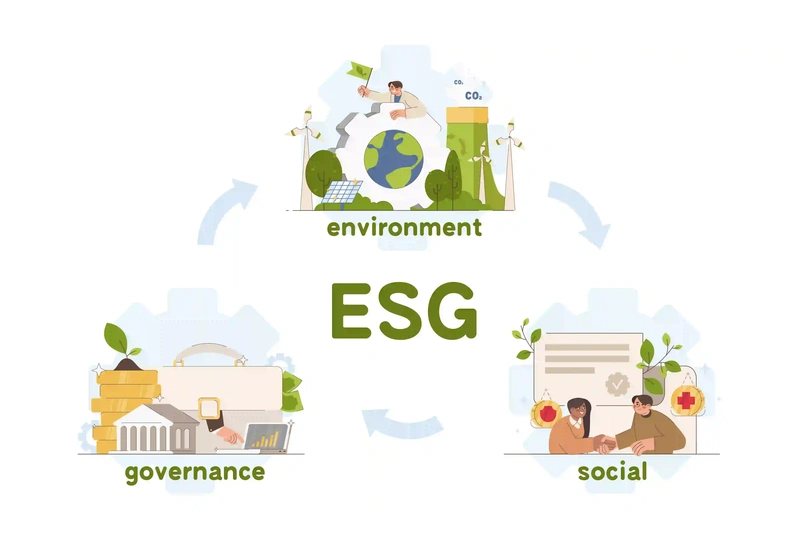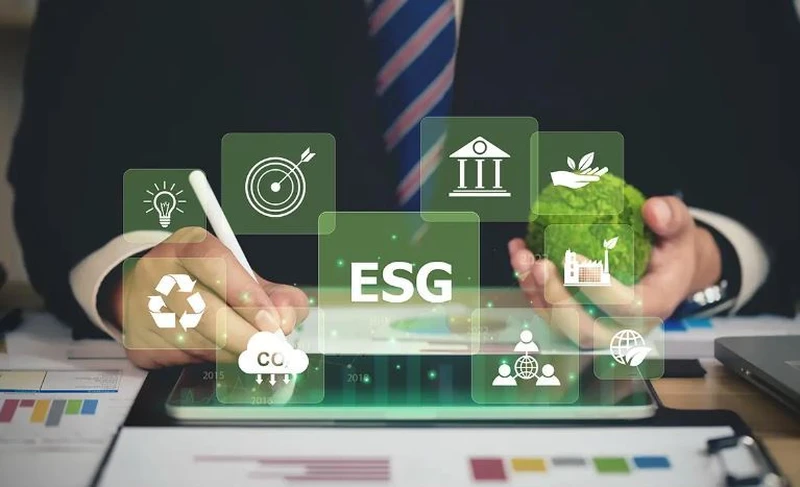Amidst intensifying climate change, social inequality, and corporate ethics crises, the global investment landscape is undergoing a significant transformation. ESG investing – which stands for Environmental, Social, and Governance – is no longer a niche concept but has become a mainstream trend in the global economy by 2025.
According to Bloomberg, by the end of 2025, assets under ESG-focused management are projected to exceed $53 trillion, accounting for over one-third of total global assets – clear evidence of a worldwide shift in investor mindset.
What is ESG investing?
ESG investing involves evaluating financial performance alongside non-financial factors, including:
-
E (Environmental): Environmental impact – carbon emissions, energy usage, and natural resource management.
-
S (Social): Social responsibility – labor conditions, gender diversity, and community relations.
-
G (Governance): Corporate governance – transparency, management structure, and anti-corruption policies.
Modern investors no longer focus solely on “how much a company earns” but also ask, “how does a company earn its profits?”

Why is ESG investing leading the global trend?
1. Enhanced risk resilience
Companies adhering to ESG standards tend to operate more transparently, reducing risks related to legal issues, media crises, and market volatility.
2. Attractive to long-term investors
Institutional investors – particularly pension funds – increasingly prioritize companies with clear ESG strategies, using them as key indicators of long-term financial sustainability.
3. Aligned with consumer preferences
Millennials and Gen Z consumers favor environmentally friendly and socially responsible brands, pushing businesses to adapt.

ESG investment trends in Vietnam
Although ESG investing is still in its early stages in Vietnam, several positive developments have emerged:
-
Ho Chi Minh City Stock Exchange (HOSE) has introduced the VN100 ESG Index to assess listed companies based on sustainability criteria.
-
Major corporations have started publishing sustainability reports and incorporating ESG into their operational strategies.
-
International funds such as IFC, Dragon Capital, and VinaCapital now require their partner companies to adopt ESG standards.
In the post-COVID era and amidst the global Net Zero race, ESG has shifted from an obligation to a competitive advantage.

Key challenges for ESG investment
Despite its vast potential, ESG investing faces several hurdles:
-
Lack of standardized legal frameworks in Vietnam.
-
Limited access to reliable ESG data and measurement tools.
-
High initial costs, especially for small and medium-sized enterprises (SMEs).
Nevertheless, with support from investment funds, international organizations, and strategic advisory firms, Vietnamese businesses can gradually integrate into the global sustainable value chain.
MettiTech Group Holdings: Your trusted ESG partner
With its vision of sustainable, technology-driven growth, MettiTech Group Holdings is a strategic partner helping businesses implement ESG effectively:
-
ESG strategy consulting & green digital transformation
-
Integration of carbon emission tracking and product lifecycle technologies
-
Development of transparent, internationally standardized ESG reporting software
-
Connection with green investment funds and financial support organizations
MettiTech believes that ESG is not just a trend but a long-term commitment to a fairer, more sustainable, and innovative economy.

Conclusion: ESG – The golden key to unlocking the future economy
In today’s digital, green, and globalized economy, ESG investing is no longer optional – it’s a vital requirement for companies seeking to survive and thrive. Investors, consumers, and regulators are demanding higher standards of responsibility and transparency.
MettiTech Group Holdings is committed to supporting the business community on their ESG journey – from mindset shifts to concrete actions, from strategies to solutions, and from financial returns to social impact.
CONTACT
